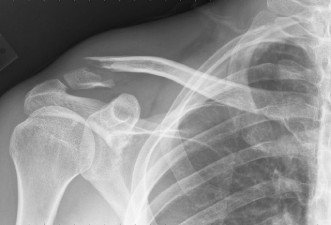Over the next two weeks, I have to decide what kind of benefits I want to pay for at my job.
I need to decide what kind of health insurance I want (and I use my Health Insurance Made Easy spreadsheet), as well as dental and vision insurance. Do I want to contribute to my Health Savings Account? And finally, what about long term disability insurance?
If you are unable to work due to a health issue, long term disability insurance will pay you while you are incapacitated. Each insurance plan has its own rules, but it?s usually a percentage of your income (mine is 60%) for either 2 years, 5 years, or until you hit retirement age.
This is an incredible safety net and I strongly recommend anyone consider buying this insurance. When you consider the fact that the 60% of your original income is tax free, it?s actually pretty darn close to 100%. That kind of money is going to be a lifesaver when you are disabled and cannot earn money. In fact, I believe that people in certain circumstances should pay for long term disability insurance before they save money for retirement.
Specifically, a person with a family to support and a physically intensive job is a prime candidate. A young office worker like me? Forget about it!
You Have to Be REALLY Disabled to Not Work an Office Job
I currently have long term disability insurance because I wanted a nice safety net. My personal finance professor in college told me it?s a smart thing to get, so I signed up. But today I tried to think about a scenario where I could actually claim the benefit.
You have to understand, I work an office job. In fact, I can work from home in my underwear and be just as effective as I am at my desk in the office. The three most important physical characteristics I need to complete my job are a functioning brain, vision to see the computer screen, and fingers to type with.
I?ve tried to come up with theoretical illnesses or injuries that would allow me to claim benefits from long term disability insurance, and here?s all I could come up with:
- Getting stabbed in both eyes with a pencil (or any other way I would lose my vision, most likely glaucoma)
- Getting a terminal, chronic illness that requires me to be doped up all the time to deal with pain (hence, lack of brain function)
- Literally losing my mind (at which point, does a schizophrenic or incoherent person care about money?)
- Having both my arms amputated due to an aggressive case of frostbite (or any other reason to lose the ability to type)

This wouldn't qualify me for long term disability benefits. photo credit: flickr.com/k9d/
That?s pretty much it. A bad back wouldn?t keep me from working this job. Neither would a broken hip. I could literally have my legs amputated and not qualify for long term disability due to the nature of my job.
I could even have a lot of different types of cancer and not qualify for this benefit. The list could go on. And even losing the ability to type might not qualify me for benefits because it could be circumvented with speech to text software.
There just aren?t many scenarios, even far fetched ones, where I would need this insurance.
Is the Cost Worth the Benefit?
Last year I signed up for long term disability insurance because I wanted the benefit. My annual premium for this insurance costs $379.86. I thought that money was worth it to get 60% of my pay if I become disabled.
The problem is, I didn?t go so far to conceptualize what ?disabled? means for an office worker. When I think about that, this insurance becomes a big waste of money.
Add on the fact that my new premium would be $520.00 for 2012, and there?s no way I?m buying that crap!
If your job gives you the ability to purchase long term disability insurance, it might be a great idea. If your work involves manual labor, you almost certainly want it.
But if your job is a cushy office gig that you could do even after you lose your legs, you probably don?t need it.
Source: http://www.thousandaire.com/blog/young-office-workers-dont-need-long-term-disability-insurance/
apple juice brad pitt brad pitt us constitution us constitution articles of confederation articles of confederation
No comments:
Post a Comment